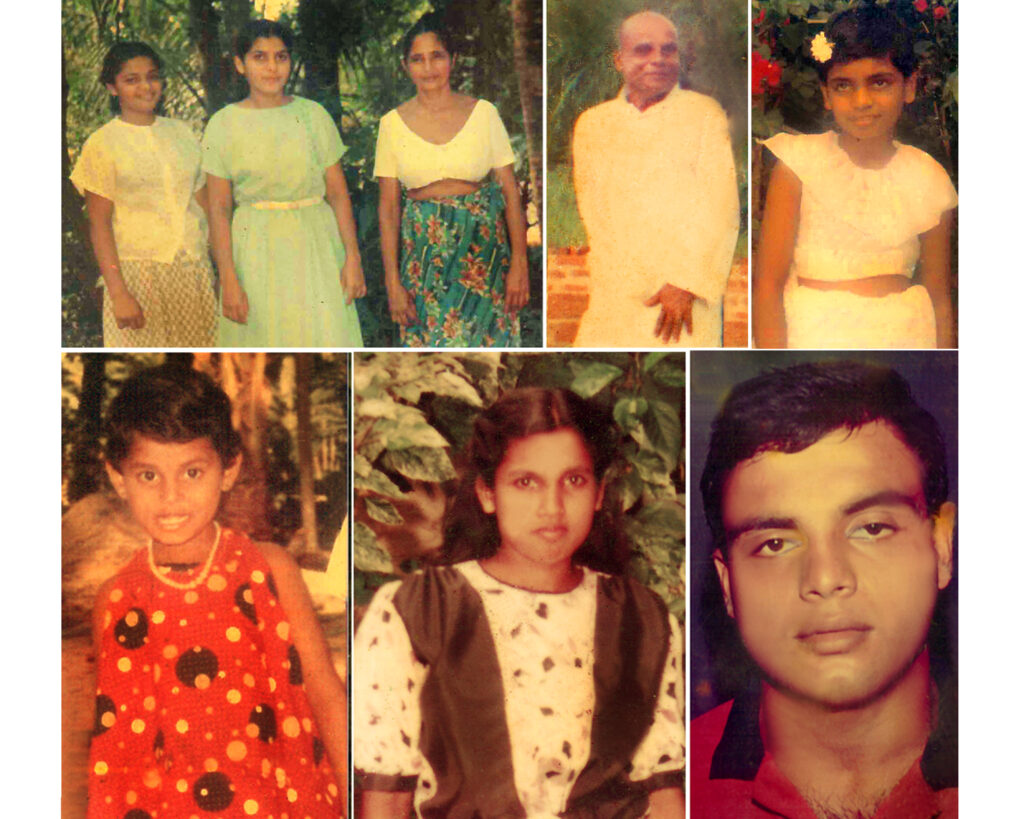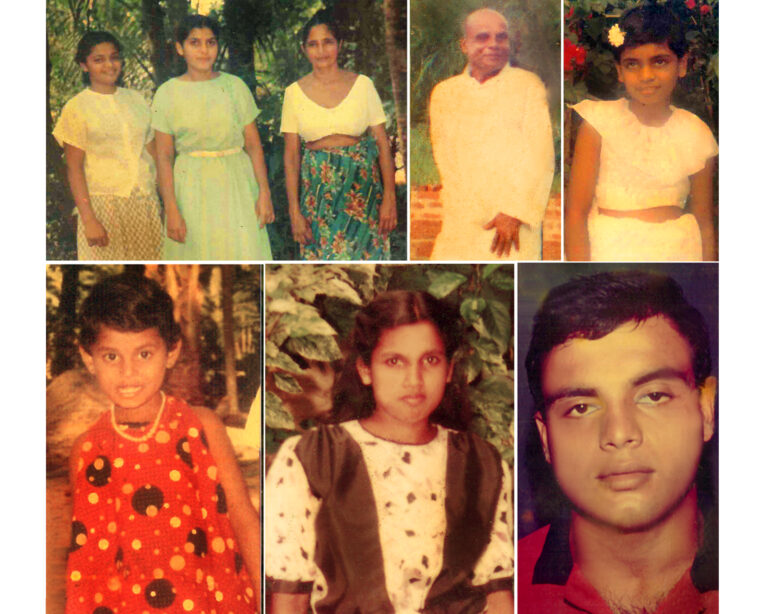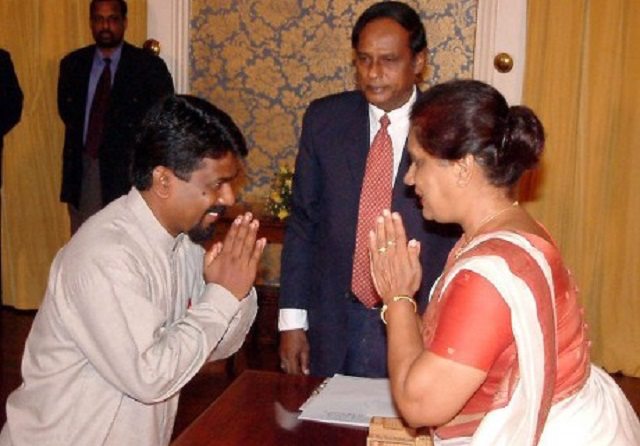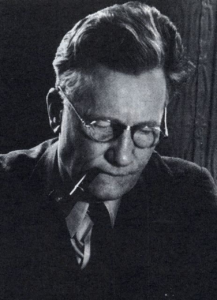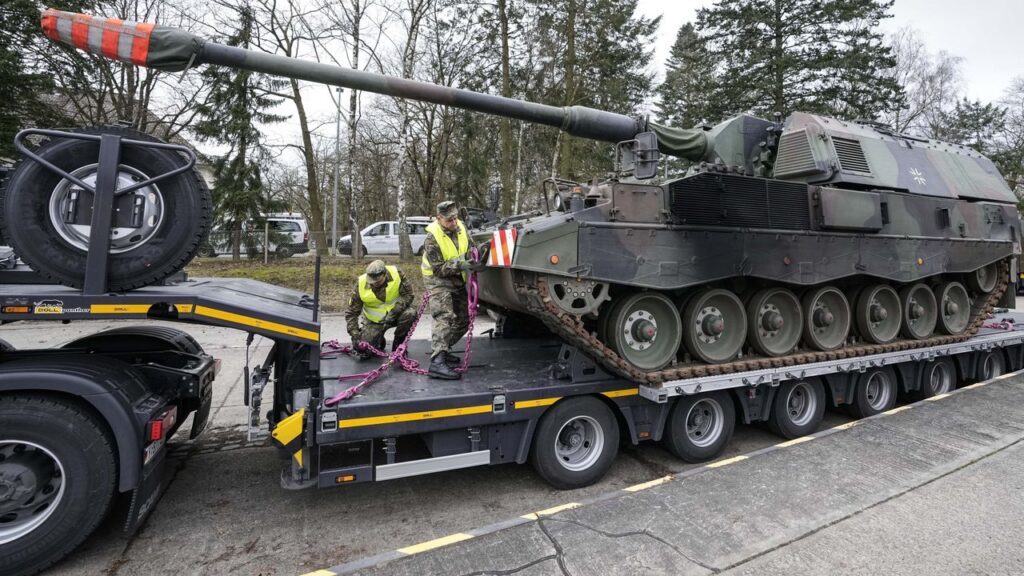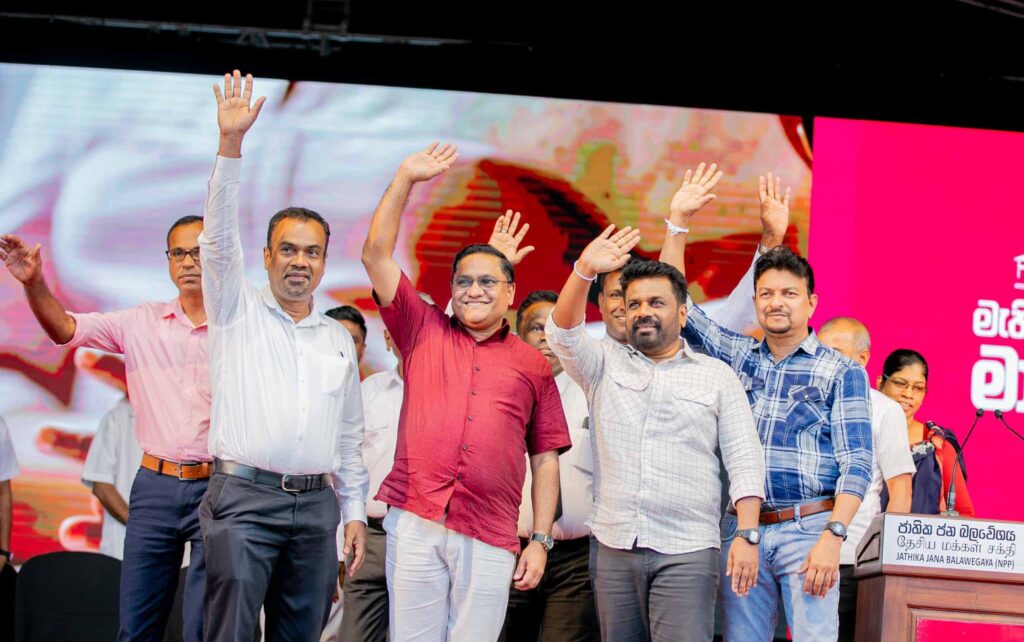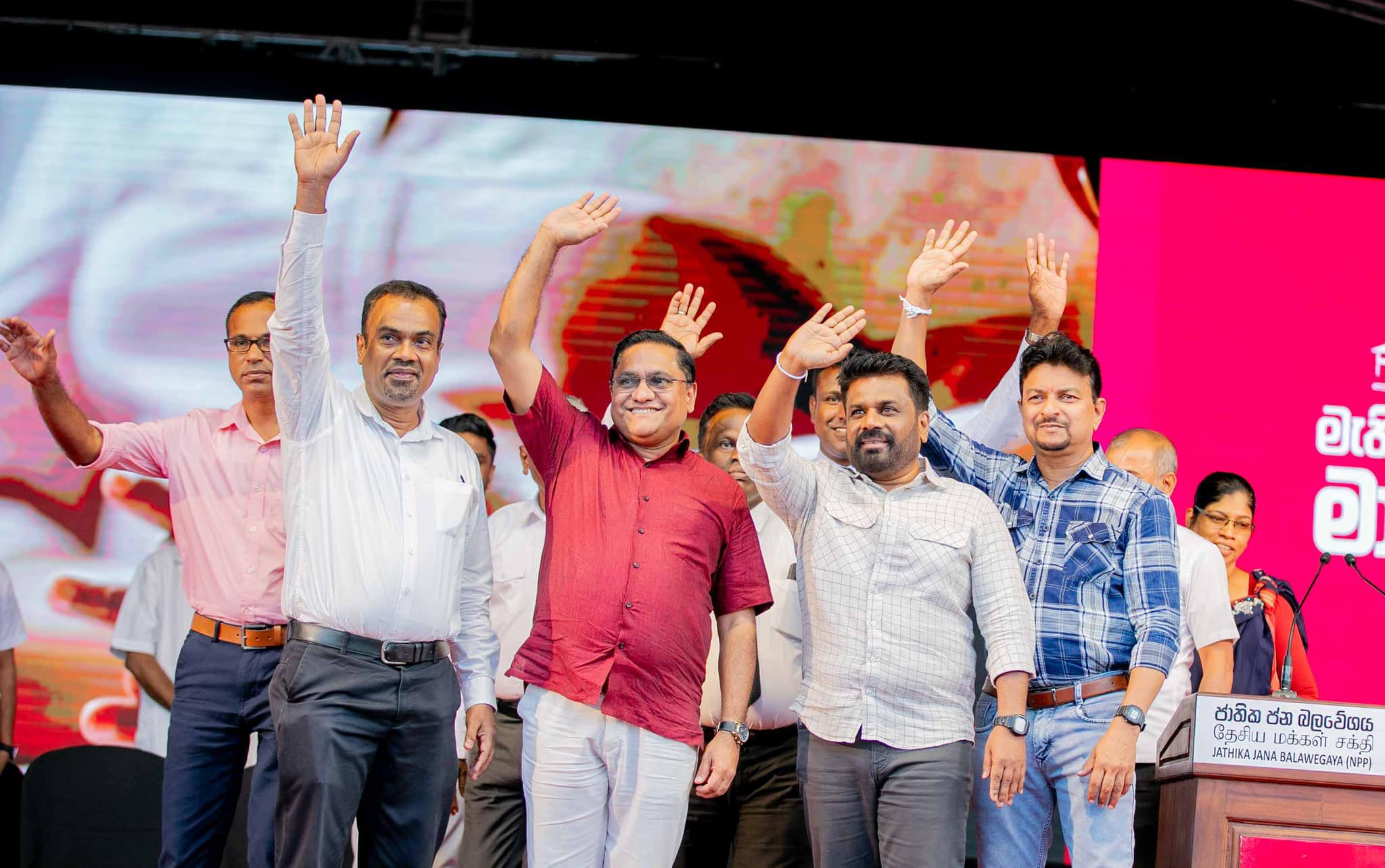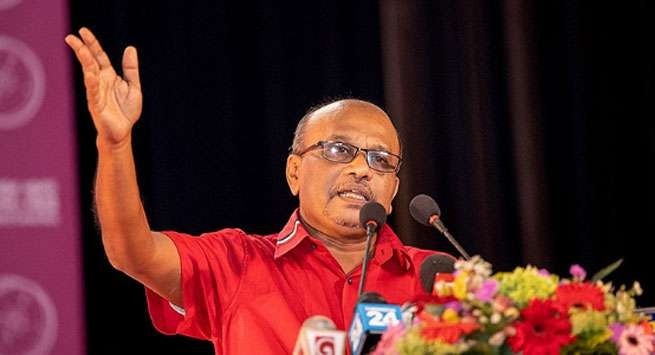බොල්ෂෙවික්වාදයේ ඓතිහාසික අඛණ්ඩතාව සඳහා අරගලය: හජාජාක 21 වැනි සියවසේ සමාජවාදී ජාත්යන්තරවාදයේ දේශපාලන ආකෘතිය ලෙස
ශ්රී ලංකාවේ සමාජවාදී සමානතා පක්ෂයේ (සසප) විප්ලවවාදී වාම කන්ඩායම (RLF) වන ශ්රී ලංකාවේ සහ දකුනු ආසියාවේ සමාජවාදී නායකත්වය (SLLA) හි දේශපාලන කමිටුව විසිනි.
විප්ලවවාදී නායකත්වයේ ඓතිහාසික අර්බුදය
1930 ගනන් වලින් පසු ලෝක ධනවාදයේ ගැඹුරුම අර්බුදය මගින් 21 වන සියවස හි ආරම්භක දශකයන් නිර්වචනය කෙරේ. ආර්ථිකය එකතැන පල්වීම, දේශපාලන අස්ථාවරත්වය සහ මහජන අතෘප්තියට මුහුන දෙන පාලක පන්තිය යලිත් වරක් මිලිටරිවාදය, රාජ්ය මර්දනය සහ ෆැසිස්ට්වාදී අධිකාරීවාදය වෙත හැරෙමින් තිබේ. අධිරාජ්යවාදී බලවතුන්ගේ මුදුනෙහි සිට, එක්සත් ජනපදය චීනය සමග ව්යසනකාරී ගැටුමකට සූදානම් වෙමින් සහ ගාසා තීරයේ ඊශ්රායලයේ ජන සංහාරයට පිටුබලය දෙමින් යුක්රේනයේ රුසියාවට එරෙහි එහි ප්රොක්සි යුද්ධය තීව්ර කරමින් සිටී. දකුනු ආසියාවේ ද ඇතුලු ජාතික ධනේශ්වරයන්, ගෝලීය ධනවාදයේ අර්බුදය ගැඹුරු කරමින් කම්කරුවන්ගේ ප්රජාතන්ත්රවාදී අයිතීන් හා ජීවන කොන්දේසි මත ඔවුන්ගේ ප්රහාර තීව්ර කර ඇත.

නමුත්, අහිමිව පවතින්නේ කුමක්ද? ලෝක සමාජවාදී විප්ලවය සඳහා වෛෂයික කොන්දේසි පරිණත වී ඇත. එක්සත් ජනපදයේ හා යුරෝපයේ මෝටර් රථ කම්කරුවන්ගේ වැඩ වර්ජනවල සිට ශ්රී ලංකාවේ මහජන විරෝධතා සහ ඊශ්රායල යුද අපරාධවලට එරෙහි ගෝලීය විරෝධය දක්වා – මහජන ව්යාපාර පුපුරා ගොස් ඇත. කෙසේ වෙතත්, සංක්රමණ වැඩපිළිවෙල (1938) හි, ට්රොට්ස්කි ලියූ පරිදි, “සමස්තයක් ලෙස ලෝක දේශපාලන තත්වය, ප්රධාන වශයෙන් නිර්ධන පංතියේ නායකත්වයේ ඓතිහාසික අර්බුදයකින් සංලක්ෂිත වේ.” අත්යවශ්ය ප්රශ්නය වන්නේ අධිරාජ්යවාදයට, ජාතික ස්වෝත්තමවාදයට සහ ධනේශ්වර ආඥාදායකත්වයට එරෙහි අරගලයේදී කම්කරු පන්තියට මග පෙන්විය හැකි විප්ලවවාදී නායකත්වයක් ගොඩනැගීමයි.
මෙම නායකත්වය හතරවන ජාත්යන්තරයේ ජාත්යන්තර කමිටුවෙන් (හජාජාක/ICFI) මූර්තිමත් වේ. අද ට්රොට්ස්කිවාදී සමාජවාදී ජාත්යන්තරවාදයට, විප්ලවවාදී මාක්ස්වාදයේ ඓතිහාසික හා න්යායික අඛණ්ඩතාව ආරක්ෂා කරන සහ වර්ධනය කරන එකම ව්යාපාරය වන ජාත්යන්තර කමිටුවෙන් පිටත, අර්ථයක් නැත.
මාක්ස්වාදය සහ සමාජවාදී ජාත්යන්තරවාදය: වැඩපිළිවෙල පිලිබද ප්රශ්නයක්
සමාජවාදී ජාත්යන්තරවාදය යනු යුතෝපියානු පරමාදර්ෂයක් නොව ධනේශ්වර නිෂ්පාදනයේ ස්වභාවයෙන්ම පැන නගින වෛෂයික අවශ්යතාවයකි. කාල් මාක්ස් සහ ෆ්රෙඩ්රික් එංගල්ස්, කොමියුනිස්ට් ප්රකාශනය (1848) තුල “කම්කරුවන්ට රටක් නැත” ලෙස මෙම මූලධර්මය ස්ථාපිත කළහ. ගෝලීයකරණය වූ ආර්ථිකයක් වර්ධනය කිරීම මගින් ධනේශ්වර ක්රමය ජාත්යන්තර කම්කරු පන්තියක් නිර්මානය කර ඇති අතර, ඔවුන්ගේ විමුක්තිය සාක්ෂාත් කරගත හැක්කේ ලෝක පරිමාණයෙන් ධනවාදය පෙරලා දැමීමෙන් පමනි.
මෙම මූලික මූලධර්මය එහි ඉහලම ප්රකාශනය අත්කර ගත්තේ 1917 ඔක්තොම්බර් බොල්ෂෙවික් විප්ලවය තුලිනි. ලෙනින් සහ ට්රොට්ස්කි ඔවුන්ගේ මූලෝපාය පදනම් කලේ සමාජවාදය තනි රටක් තුල ගොඩනැගිය නොහැක යන අවබෝධය මතය. 1919 දී තුන්වන ජාත්යන්තරය පිහිටුවීමෙන් අදහස් කෙරුනේ විප්ලවවාදී නිර්ධන පංතියට ලෝක සමාජවාදී විප්ලවය සම්බන්ධීකරණය කිරීම සඳහා සංවිධානාත්මක මධ්යස්ථානයක් සැපයීමයි.
කෙසේ වෙතත්, අවවාදාත්මක සටහනක් ලෙස, “කොමියුනිස්ට් ජාත්යන්තරයේ කෙටුම්පත් වැඩපිළිෙවල – මූලධර්ම පිලිබද විවේචනයක්” හි ට්රොට්ස්කි, පහත දැක්වෙන පරිදි සමාජවාදී විප්ලවය එකවර සමගාමීව ආරම්භ කළ යුතුය යන අදහස ප්රතික්ෂේප කරමින් ඔහුගේම පැහැදිලි කිරීමක් සඳහන් කළේය.
“එකම රටක්වත් තම අරගලයේ දී අනෙක් රටවල් එනතුරු ‘බලා සිටිය’ යුතු නැත. සමාන්තර ජාත්යන්තර ක්රියාමාර්ගයක් වෙනුවට කල්බැලීමේ ජාත්යන්තර අක්රියතාවයක් ආදේශ නොකෙරෙන පරිදි මෙම මූලික අදහස පුනරුච්චාරණය කිරීම ප්රයෝජනවත් සහ අවශ්ය වනු ඇත. අනෙක් ඒවා කරන තෙක් බලා නොසිට, අපගේ මුලපිරීම මගින් උත්තේජනයක් ලබා දෙනු ඇති බවට පූර්ණ විශ්වාසයක් ඇතිව ජාතික පදනමින් අරගලය ආරම්භ කිරීම හා නොකඩවා කර ගෙන යාම කල යුතුය. (ට්රොට්ස්කි, ‘සාම වැඩසටහන’ Works වෙළුම III, 1 කොටස, 89-90 පිටු, රුසියානු සංස්කරණය.)
ස්ටාලින් යටතේ සෝවියට් සංගමයේ පරිහානිය සහ “එක් රටක සමාජවාදය” යන ජාතික-ප්රතිසංස්කරණවාදී ප්රතිගාමී න්යාය අනුගමනය කිරීම, ජර්මනියේ (1923), චීනයේ (1927), ස්පාඤ්ඤයේ (1936-39) සහ වෙනත් තැන්වල විප්ලවවාදී ව්යාපාර පාවා දීමට හේතු විය. ස්ටැලින්වාදී ප්රති-විප්ලවය, ධනේශ්වර ජාතික අවශ්යතාවලට කම්කරු පන්තිය ක්රමානුකූලව යටත් කළ කොමින්ටර්න්යේ නිලධාරීමය යාන්ත්රණයන් බිහි කළේය.
ඊට ප්රතිචාර වශයෙන් ට්රොට්ස්කි සමාජවාදී ජාත්යන්තරවාදයේ ධජය රැක ගැනීමට සටන් කළේය. ලෝක සමාජවාදී විප්ලවයේ මූලෝපාය ඉදිරියට ගෙන යාම සඳහා 1938 දී හතරවන ජාත්යන්තරය පිහිටුවන ලදී. ධනවාදයේ මරලතෝණිය සහ හතරවන ජාත්යන්තරයේ කර්තව්යයෝ (1938) හි, ට්රොට්ස්කි මෙසේ ලිවීය.
“ඊලඟ ඓතිහාසික කාලපරිච්ඡේදයේ දී ම සමාජවාදී විප්ලවයකින් තොර වීම, මහ ව්යසනයක් සමස්ත මානව වර්ගයාටම තර්ජනය කරයි. දැන් වාරය ඇත්තේ කම්කරු පන්තිය වෙතයි, ප්රධාන වශයෙන් එහි විප්ලවවාදී පෙරටුගාමීන්ටයි.”
ජාත්යන්තර කමිටුව සහ සමාජවාදී ජාත්යන්තරවාදයේ ආරක්ෂාව
1940 දී ට්රොට්ස්කිගේ ඝාතනයෙන් පසුව, නායකත්වයේ අර්බුදය ගැඹුරු විය. හතරවන ජාත්යන්තරය තුල පැබ්ලෝවාදී සංශෝධනවාදීන් 1950 ගනන් මුලදී මතුවූයේ, විප්ලවවාදී භූමිකාවක් ඉටුකිරීමට ස්ටැලින්වාදී හා ධනේශ්වර ජාතිකවාදී ව්යාපාරවලට බලපෑම් කල හැකි බවට තර්ක කරමිනි. මෙම දියකර දැමීමේ ඉදිරිදර්ශනයට ජේම්ස් පී. කැනන් ඇතුලු එක්සත් ජනපදයේ සමාජවාදී කම්කරු පක්ෂයේ (එස්ඩබ්ලිව්පී) නායකයින් සහ ජෙරී හීලි විසින් නායකත්වය දුන් බ්රිතාන්ය ට්රොට්ස්කිවාදීන් විසින් තීරනාත්මක ලෙස විරුද්ධ විය. 1953 කැනන් විසින් ලියන ලද විවෘත ලිපිය සහ පසුව පැබ්ලෝවාදය සමඟ ඇති වූ භේදය හතරවන ජාත්යන්තරයේ ජාත්යන්තර කමිටුව (හජාජාක) පිහිටුවීමට හේතු විය.

අධිරාජ්යවාදයේ ගෝලීය ප්රහාරයට එරෙහිව ජාත්යන්තරව කම්කරු පන්තිය එක්සත් කිරීම සඳහාද, බොල්ෂෙවික් උරුමය ආරක්ෂා කිරීම සඳහාද, ජාත්යන්තර කමිටුව ස්ටැලින්වාදයට, පැබ්ලෝවාදයට සහ සියලු ආකාර අවස්ථාවාදයට1 එරෙහිව ස්ථීරසාර අරගලයක් ගෙන ගියේය.
අපි රකිනා උරුමය (1988) හි ඩේවිඩ් නෝර්ත් මෙසේ ලියා ඇත:
“පැබ්ලෝවාදී සංශෝධනවාදයට එරෙහිව හජජාක ගෙනගිය අරගලය එක්සත් ජනපදයේ ට්රොට්ස්කිවාදී ව්යාපාරයේ අයිතිහාසික අඛන්ඩතාවය ආරක්ෂා කළේය.”
කම්කරු පන්තියේ ජාත්යන්තර පක්ෂය ආරක්ෂා කිරීම සඳහා වූ මෙම ප්රතිපත්තිගරුක සටනේ ප්රතිඵලයක් ලෙස, හීලි යටතේ බ්රිතාන්යයේ කම්කරු විප්ලවවාදී පක්ෂය (WRP) ට්රොට්ස්කිවාදී ව්යාපාරයේ ප්රධාන බලවේගයක් බවට පත්විය. කෙසේ වෙතත්, 1970 දශකයේ අගභාගයේ සහ 1980 දශකයේ මුල් භාගය වන විට, අවස්ථාවාදී පීඩනයන් කවිපයේ නිලධාරිවාදී පරිහානියට හේතු වූ අතර, මෙම ක්රියාවලිය ඩේවිඩ් නෝර්ත් සහ වර්කර්ස් ලීගයේ (එක්සත් ජනපද) නායකත්වය විසින් හෙළිදරව් කරන ලදී. හීලිගේ සංවිධානාත්මක ක්රම සහ දේශපාලන අපගමනයන් පිළිබඳ නෝර්ත්ගේ විවේචනය, ජාත්යන්තර කමිටුව තුළ මාක්ස්වාදී මූලධර්ම නැවත තහවුරු කිරීමේදී මූලික විය.
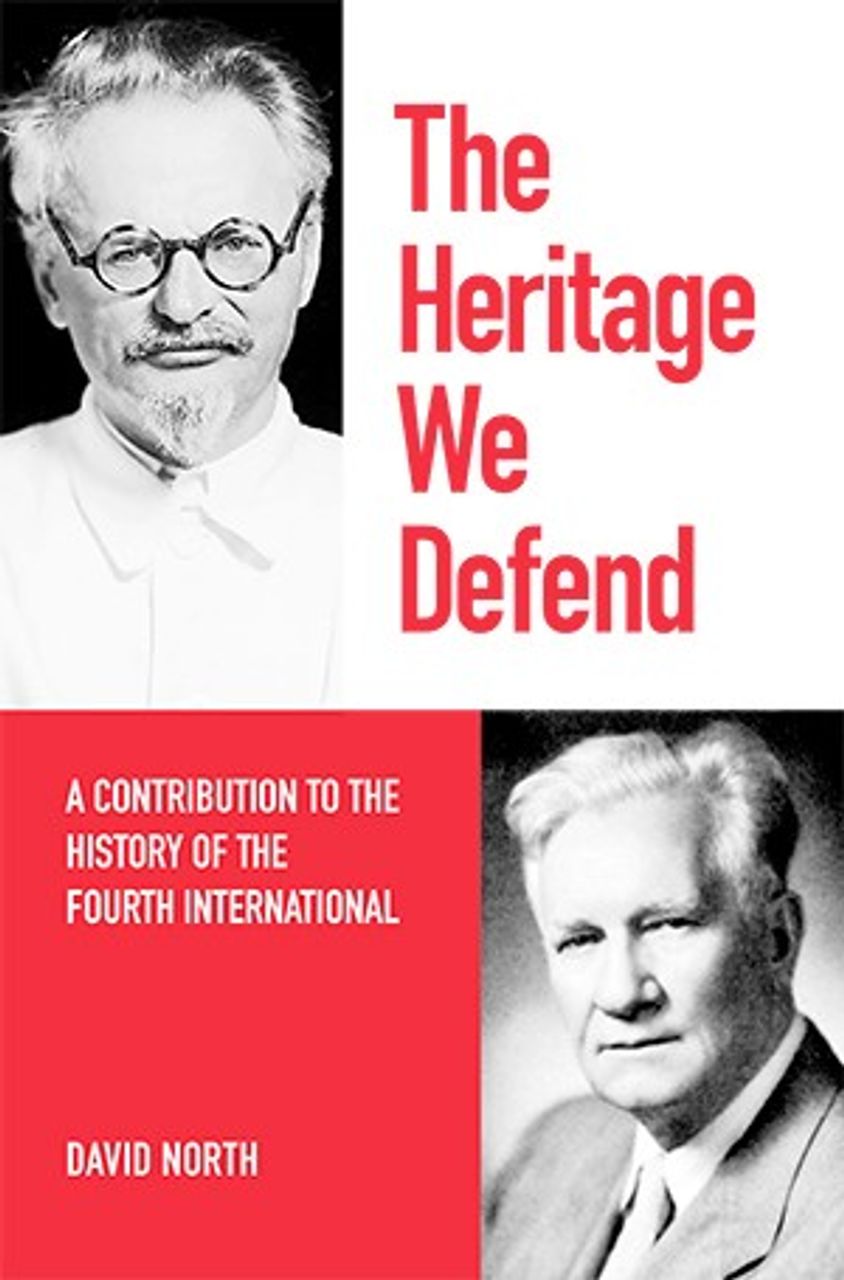
අවස්ථාවාදයෙන් නියත බිඳීමක් සිදු වූයේ 1985-86 දී, ජාත්යන්තර කමිටුව විසින් කවිප නායකත්වය නෙරපා හැරීමත් සමඟ ය. නෝර්ත්, 1982-86 හතරවන ජාත්යන්තරයේ ජාත්යන්තර කමිටුවේ භේදයේ දේශපාලන මූලාරම්භය සහ ප්රතිවිපාක (2019 අගෝස්තු 03) හි පහත පරිදි ලිවීය:
“වසර 40කට ආසන්න කාලයක් ආපසු හැරී බැලීමේ වාසිය ඇතිව, 1985 දෙසැම්බරයේ දී ජාත්යන්තර කමිටුවෙන් WRP අත්හිටුවීම සහ 1986 පෙබරවාරි මාසයේ දී සබඳතා සම්පූර්ණයෙන්ම බිඳ දැමීමෙන් අවසන් වූ මෙම විවේචනය [WRP විසින් අනුගමනය කරන ලද මාවත පිළිබඳව වර්කර්ස් ලීගය විසින් කරන ලද] මගින් ආරම්භ කරන ලද ගැටුම, ලෝක මාක්ස්වාදී ව්යාපාරයේ ඉතිහාසයේ තීරණාත්මක සිදුවීමක් බව අපට හඳුනාගත හැකිය. හතරවන ජාත්යන්තරයේ පැවැත්මම අවදානමට ලක්ව තිබුණි. ජාත්යන්තර කමිටුව හැර, ලියොන් ට්රොට්ස්කි විසින් ආරම්භ කරන ලද ව්යාපාරය පැබ්ලෝවාදීන් විසින් දේශපාලනිකව දියකර හරින ලදී. පැබ්ලෝවාදීන්ට සංවිධානාත්මක පාලනය ස්ථාපිත කිරීමට හැකි වූ සියලුම රටවල, ඔවුන් ට්රොට්ස්කිවාදී සංවිධාන ස්ටැලින්වාදී, සමාජ ප්රජාතන්ත්රවාදී හෝ ධනේශ්වර ජාතිකවාදී සංවිධානවල දේශපාලන සහායක කොටස් බවට පත් කිරීමෙන් විනාශ කර තිබුණි. 1985 වන විට, ඒ වන විට පැබ්ලෝවාදයට යටත් වී සිටි කම්කරු විප්ලවවාදී පක්ෂය, එම විනාශකාරී මෙහෙයුම සම්පූර්ණ කිරීමට ආසන්නව සිටියේය.”2
හතරවන ජාත්යන්තරයේ උරුමයේ අඛණ්ඩතාව සඳහා ජාත්යන්තර කමිටුව විසින් දියත් කරන ලද නොනවතින අරගලය ගැන සඳහන් කරමින්, නෝර්ත් තවදුරටත් මෙසේ පැහැදිලි කරයි3:
“මේ සියලු කාර්යයන්හිදී, අපගේ උත්සාහයන්ට මඟ පෙන්වූ මූලික දේශපාලන මූලධර්මය වූයේ මාක්ස්වාදී ජාත්යන්තරවාදයයි. ජාතික උපක්රමවලට වඩා ලෝක උපාය මාර්ගයේ ප්රමුඛතාවය අපි අවධාරනය කළ අතර, ජාතික ක්ෂේත්රය තුළ පැන නගින ගැටළු වලට සුදුසු ප්රතිචාරය ලබා ගත හැක්කේ ගෝලීය ක්රියාවලීන් විශ්ලේෂණය කිරීමේ පදනම මත පමණක් බව අපි අවධාරනය කළෙමු. මෙම පදනම මත, හතරවන ජාත්යන්තරයේ සමස්ත ඉතිහාසය තුළ නොතිබූ ජාත්යන්තර සහයෝගීතා මට්ටමක් වර්ධනය කිරීමට ජාත්යන්තර කමිටුවට හැකි විය. ඇත්ත වශයෙන්ම, “සහයෝගීතාවය” යන වචනය WRP ජාතිකවාදී පලායන්නන් සමඟ භේදයෙන් පසුව වර්ධනය වූ ජාත්යන්තර කමිටුවේ ශාඛා අතර අන්තර්ක්රියාවේ ස්වභාවය ප්රමාණවත් ලෙස ඇතුළත් නොකරයි.”4
මෙයින් නිශ්චිතවම පෙන්නුම් කළේ ජාත්යන්තර සමාජවාදයේ ඉදිරිදර්ශනය තුල ඔවුන් බලමුලු ගැන්වීම සඳහා ජාත්යන්තර කමිටුවේ ශාඛා අතර වැඩපිලිවෙලේ සහ සංවිධානාත්මක සබඳතාවලින් පිටත අද කම්කරු පන්තියේ ජාත්යන්තර “සහයෝගීතාවයට” කිසිදු අර්ථයක් නොමැති බවයි.
අද දින සමාජවාදී ජාත්යන්තරවාදයේ ආකෘතිය සහ අන්තර්ගතය
21 වන සියවසේ සමාජවාදී ජාත්යන්තරවාදය අන්තර් සම්බන්ධිත ක්රියාවලි තුනකින් අර්ථ දැක්වේ:
- අධිරාජ්යවාදී යුද්ධය සහ මිලිටරිවාදය: චීනයට එරෙහි එක්සත් ජනපදයේ යුද සූදානම සහ යුක්රේනයේ රුසියාවට එරෙහි නේටෝ යුද්ධය, ගෝලීය අධිරාජ්යවාදී පද්ධතියේ පෙර නොවූ විරූ ඓතිහාසික අර්බුදයකින් පැන නගින, මූල්ය කතිපයාධිකාරය විසින් ගෝලීය ආධිපත්යය සඳහා වන පුලුල් මූලෝපායක කොටසකි. ගාසා තීරයට එල්ල වූ ජන සංහාරක ප්රහාරය අධිරාජ්යවාදී යුද්ධයේ අනිවාර්ය කොටසකි.
- ධනේශ්වර ප්රජාතන්ත්රවාදයේ අර්බුදය: එක්සත් ජනපදයේ ට්රම්ප්වාදයේ සිට ඉන්දියාවේ හින්දුත්වා දක්වා ගෝලීය වශයෙන් ෆැසිස්ට් ව්යාපාරවල නැගීම, මහජන විරෝධය තලා දැමීම සඳහා පාලක පන්තිය අධිකාරීවාදය වෙත හැරීමේ කොටසකි. දකුනු ආසියාවේ ද ඇතුලු ඊනියා “ප්රජාතන්ත්රවාදී” පාලන තන්ත්රයන් විසින්ම කප්පාදු හා මිලිටරි-පොලිස් පාලනය පැනවීම සදහා ප්රජාතන්ත්රවාදී අයිතීන් බිඳ දමමින් සිටිති.
- පන්ති අරගලයේ ගෝලීයකරණය: කම්කරු පන්තිය ධනවාදයට එරෙහි අරගලයට අවතීර්ණ වෙමින් සිටී. ශ්රී ලංකාව, ඉන්දියාව, ප්රංශය, එක්සත් ජනපදය සහ ඉන් ඔබ්බෙහි මහා වැඩවර්ජන, මහජන විරෝධතා සහ කම්කරුවන්ගේ නැගිටීම් ජාත්යන්තර නිර්ධන පන්තියේ ගැඹුරු වන රැඩිකල්කරණය හඟවයි. කෙසේ වෙතත්, විප්ලවවාදී නායකත්වයකින් තොරව මෙම ව්යාපාර, ව්යාජ වාම බලවේග විසින් යටපත් කර ගැනුම, නොමග යවනු ලැබීම හා පාවා දෙනු ලැබීම විය හැකිය.
මෙම සන්දර්භය තුළ, ගෝලීය පරිමානයේ විප්ලවවාදී සමාජවාදී වැඩපිලිවෙලක් සඳහා සටන් කරන එකම මාක්ස්වාදී සංවිධානය වන්නේ ජාත්යන්තර කමිටුවයි. අද දින සමාජවාදී ජාත්යන්තරවාදය ගත යුතු එකම සුජාත රූපය එයයි. හතරවන ජාත්යන්තරය වෙනුවට, ස්වයංසිද්ධ ව්යාපාර, ස්ටැලින්වාදී පක්ෂ හෝ ජාතිකවාදී සැකසුම් ආදේශ කිරීමට ගන්නා සෑම උත්සාහයක්ම දේශපාලන ව්යසනයට මග පාදයි.
මාක්ස්වාදී න්යාය තුල අන්තර්ගතය සහ ආකෘතියේ අපෝහකය
අන්තර්ගතය සහ ආකෘතිය (රූපය) අතර සම්බන්ධය මාක්ස්වාදී දර්ශනය, සෞන්දර්යය සහ දේශපාලන ආර්ථිකයේ ප්රධාන අපෝහක ගැටලුවකි. මාක්ස්වාදී අපෝහක ක්රමය අවධාරනය කරන්නේ අන්තර්ගතය සහ ආකෘතිය එකිනෙකට සම්බන්ධ වන අතර දෙකට බෙදීමට සීමා කර යාන්ත්රිකව වෙන් කළ නොහැකි බවයි. ඓතිහාසික භෞතිකවාදය, පන්ති අරගලය සහ විප්ලවවාදී මූලෝපාය අවබෝධ කර ගැනීමේදී මෙම අපෝහකය තීරණාත්මක වේ.
ඓතිහාසික භෞතිකවාදය තුල අන්තර්ගතය සහ ආකෘතිය:
මාක්ස් සහ එංගල්ස් අන්තර්ගතය සහ ආකෘතිය අතර අපෝහක සම්බන්ධතාවය මත පදනම්ව ඉතිහාසය පිළිබඳ භෞතිකවාදී සංකල්පය (ඓතිහාසික භෞතිකවාදය) වර්ධනය කළහ. දෙන ලද සමාජයක අන්තර්ගතය තීරණය වන්නේ එහි නිෂ්පාදන මාදිලිය – නිෂ්පාදන බලවේග සහ සම්බන්ධතා – මත බවත්, එහි ආකෘතිය, උපරි ව්යුහය (දේශපාලන, නෛතික සහ දෘෂ්ටිවාදාත්මක ආයතන) හරහා ප්රකාශ කරන බවත් මාක්ස් පැහැදිලි කළේය.
දේශපාලන ආර්ථිකය පිළිබඳ විවේචනයට දායකත්වයක් (1859) [A Contribution to the Critique of Political Economy (1859)] , හි පූර්විකාවේ මාක්ස් මෙසේ ප්රකාශ කරයි.
“මෙම නිෂ්පාදන සම්බන්ධතාවල සමස්ථයෙන් සමාජයේ සැබෑ පදනම වන ආර්ථික ව්යුහය සමන්විත වන අතර, ඒ මත නෛතික හා දේශපාලන උපරි ව්යුහයක් පැන නැගීමද, ඊට අනුව සමාජ විඥානයේ නිශ්චිත ආකාරයන් අනුරූප වීමද සිදුවේ.”
මෙහිදී, අන්තර්ගතය (ආර්ථික පදනම) ආකෘතිය (උපරි ව්යුහය) තීරණය කරයි, නමුත් මෙම සම්බන්ධතාවය අපෝහක වේ – කාලයත් සමඟ ශක්තිමත් කරමින් හෝ වෙනස් කරමින්, ආකෘතියට අන්තර්ගතය මත ප්රතික්රියා කළ හැකිය.
අපෝහක භෞතිකවාදය තුල අන්තර්ගතය සහ ආකෘතිය:
මාක්ස් සහ එංගල්ස් විසින් හේගලියානු දර්ශනයෙන් වර්ධනය කරන ලද අපෝහකය, අන්තර්ගතය සහ ආකෘතිය දකින්නේ ප්රතිවිරුද්ධයන්ගේ එකමුතුවක් ලෙස ය. අන්තර්ගතය යනු සංසිද්ධියක අභ්යන්තර සාරය හෝ හරය වන අතර ආකෘතිය එහි බාහිර ප්රකාශනය වේ. කෙසේ වෙතත්, මෙය ස්ථිතික සම්බන්ධතාවයක් නොවේ – සමහර විට පරස්පර ව, අන්තර්ගතය සහ ආකෘතිය ගතිකව අන්තර්ක්රියා කරයි.
විද්යාත්මක හා සමාජ සංසිද්ධි තුලදී, අන්තර්ගතය එහි පැරණි ආකෘතිය අභිබවා වර්ධනය වී ගොස්, විප්ලවීය වෙනස්කම්වලට තුඩු දෙමින් ප්රමාණාත්මක බවින් ගුණාත්මක බවට පරිවර්තනයන් සිදු වන ආකාරය, ස්වභාවධර්මයේ අපෝහකය තුළ සහ ඩූරිං විරෝධය තුල එංගල්ස් සාකච්ඡා කරයි.
ලෙනින් සිය දාර්ශනික සටහන් පොත් වල, මෙම අපෝහකය විප්ලවවාදී තත්වයන්ට අදාළ කරමින්, අන්තර්ගතය (කම්කරු පන්ති රැඩිකල්කරණය) පුපුරණ සුලු ලක්ෂ්යයකට ළඟා වූ විට, පැරණි ආකෘති (ධනේශ්වර ප්රජාතන්ත්රවාදය හෝ ප්රතිසංස්කරණවාදී සංවිධාන) යල් පැනෙන බවත් ඒවා ප්රතිස්ථාපනය කළ යුතු බවත් පෙන්වයි.
විප්ලවවාදී දේශපාලනයෙහිදී අන්තර්ගතයේ සහ ආකෘතියේ භූමිකාව:
ට්රොට්ස්කි, රුසියානු විප්ලවයේ ඉතිහාසය (1930) තුල, සමාජ විප්ලවයේ අපෝහකවාදය පැහැදිලි කිරීමේදී, විප්ලවවාදී ව්යාපාරවලට අන්තර්ගතයේ සහ ආකෘතියේ අපෝහකය අදාළ කරයි. විප්ලවවාදී යුගයන්හි පැරණි දේශපාලන ආකෘතීන් (පාර්ලිමේන්තු ප්රජාතන්ත්රවාදය, වෘත්තීය සමිති, ප්රතිසංස්කරණවාදී පක්ෂ) නව අන්තර්ගතයට (කම්කරු පන්ති විප්ලවවාදී විඥානයට) බාධක බවට පත් වන බව ඔහු පැහැදිලි කරයි.
ට්රොට්ස්කි පැහැදිලි කළේ, විප්ලවයේ මූලික නීතිය වන්නේ එක් පන්තියක ආධිපත්යය තවත් පන්තියකින් ආදේශ කිරීම බවත්, එයින් අදහස් වන්නේ මෙම වෙනස් වූ අන්තර්ගතය ප්රකාශ කිරීම සඳහා නව ආකාරයේ රාජ්ය බලයක් නිර්මාණය කිරීම බවත් ය. මෙයින් අදහස් කරන්නේ ධනේශ්වර පාර්ලිමේන්තු ව්යුහයන් වෙනුවට සමාජවාදී විප්ලවයන්ට නව දේශපාලන ආකෘතියක්, එනම් සෝවියට් සභා (කම්කරුවන්ගේ සභා) අවශ්ය වන බවයි.
විප්ලවවාදී ක්රියාව සඳහා මාර්ගෝපදේශයක් ලෙස අන්තර්ගතය සහ ආකෘතිය:
අන්තර්ගතයේ සහ ආකෘතියේ අපෝහකය හුදෙක් න්යායික ප්රශ්නයක් නොවේ – එය විප්ලවවාදී ක්රියාවට මග පෙන්වීමකි. සෑම සමාජ හා දේශපාලන අරගලයකදීම ප්රධාන කර්තව්යය වන්නේ, පන්ති සබඳතාවල පරිනාම වන අන්තර්ගතයට අනුරූප වන නව ආකෘති වර්ධනය කිරීමයි. අද දින ධනේශ්වර ප්රජාතන්ත්රවාදයේ පැරණි ආකාරයන්ට සහ වෘත්තීය සමිතිවලට ධනවාදයේ ගෝලීය අර්බුදය ආමන්ත්රණය කිරීමට හැකියාවක් නැත. ලෝක සමාජවාදී විප්ලවයේ අන්තර්ගතය සාක්ෂාත් කරගත හැක්කේ, කම්කරු පන්තියේ සවිඥානික නායකත්වය, එනම්, බොල්ෂෙවික්වාදයේ ඓතිහාසික අඛන්ඩතාවයේ හා උරුමයේ අනුප්රාප්තිකයා සහ ආරක්ෂකයා වන හතරවන ජාත්යන්තරයේ ජාත්යන්තර කමිටුව (හජාජාක) මගින් සංයුක්ත වන නව විප්ලවවාදී ආකෘතීන් ගොඩනැගීම තුලින් පමනි.
මාක්ස්වාදී න්යාය තුළ මුල් බැසගත් මෙම අපෝහක අවබෝධය අද සමාජවාදී මූලෝපායේ පදනම ලෙස පවතී.
සසප-වම තුල ජාතිකවාදී අවස්ථාවාදයට එරෙහිව සටන
2022 අවසානයේ සිට 2023 මුල් කාලය දක්වා ශ්රී ලංකා සසප අත්තනෝමතික ලෙස නෙරපා හරින ලද සහෝදරවරුන් ඇතුළත් වූ සසප-වම කන්ඩායම තුල පැවති සුලු ධනේශ්වර ජාතිකවාදී අවස්ථාවාදී ප්රවනතාවයකට එරෙහි ප්රතිපත්තිමය සටනකින් පසුව SLLA පිහිටුවන ලදී. සසප-වාම කණ්ඩායම පිහිටුවීමෙන් ටික කලකින්ම, කණ්ඩායම තුළ ජාතිකවාදී ප්රවණතාවක් සහ සැබෑ ජාත්යන්තරවාදය නියෝජනය කළ හා සසප සාමාජිකත්වය දිනා ගැනීමෙන් ජාත්යන්තර කමිටුවේ කේඩරයට නැවත සම්බන්ධ වීමේ අවශ්යතාවය5 සඳහා සටන් කළ සහෝදරවරු අතර භේද ඉස්මතු විය.
සසප-වම තුල මෙම සුලු ධනේශ්වර ජාතිකවාදී අවස්ථාවාදී ප්රවනතාවයට එරෙහි අපගේ අරගලය, මූලික වශයෙන් ජාත්යන්තර කමිටුවේ කේඩරයෙන් පිටත ජාත්යන්තරවාදය යලි නිර්වචනය කිරීමට උත්සාහ කරන කල්ලියකට එරෙහිව සැබෑ සමාජවාදී ජාත්යන්තරවාදය සඳහා වූ සටනකි. මෙම අවස්ථාවාදී කල්ලිය, නිර්වචනය කරන ලද දේශපාලන පදනම් මත පිහිටවූ කන්ඩායම් අරගලයද6, සසප-වාම සාමාජිකයින්ට ශ්රී ලංකා සසප හි සාමාජිකත්වය සඳහා අභියාචනා කිරීමට සහ සටන් කිරීමට ඇති අවශ්යතාවයද ප්රතික්ෂේප කළහ. මීළඟ තීරනාත්මක මහජන අරගලවලදී ශ්රී ලංකාවේ හා කලාපයේ කම්කරු පන්තියට නායකත්වය දීමට, ජාත්යන්තර කමිටුවේ ශ්රී ලංකා ශාඛාව තුල අවශ්ය විප්ලවවාදී නායකත්වය ගොඩනැගීමට කන්ඩායම් අරගලයක් කිරීම ඔවුහු ප්රතික්ෂේප කළහ. ඒ වෙනුවට ඔවුන් යෝජනා කළේ විප්ලවවාදී නායකත්වයේ අර්බුදය විසඳීමේ අරගලයේ නොයෙදී, සසප නායකත්වය දකුනට මාරු වීම වලක්වා එය “නිවැරදි මාවතේ” තැබීමට බලාපොරොත්තු වන “පීඩන කණ්ඩායමක්”7 ලෙස ක්රියා කිරීමේ මාධ්යමික ප්රතිපත්තියක් ය.
මෙම කන්ඩායම් අරගලයේ කේන්ද්රයෙහි වූයේ අන්තර්ගතය සහ ආකෘතිය අතර අපෝහක සම්බන්ධතාව යයි. සමාජවාදී ජාත්යන්තරවාදය එහි සංවිධානාත්මක ආකෘතිය වන හජාජාක හා එහි ජාතික ශාඛා වලින් වෙන් කළ නොහැකි ය යන මූලික සත්යය මෙම අවස්ථාවාදීන් නොතකා හැරියහ8. ජාත්යන්තරවාදය සදහා සසප සාමාජිකත්වය හෝ විප්ලවවාදී පක්ෂයක් ලෙස එය වර්ධනය කිරීම සඳහා එහි සාමාජිකත්වය තුල සටනක් හෝ අවශ්ය නොවන බවට තර්ක කරමින් ඔවුහු සංශෝධනවාදී සූත්රයක් ඉදිරිපත් කළහ – එය පංතිය, පක්ෂය හා නායකත්වය අතර අපෝහකාත්මක එකමුතුව ප්රතික්ෂේප කිරීමක් විය. ඒ වෙනුවට ඔවුන් යෝජනා කළේ කම්කරු පන්තියේ විප්ලවවාදී පෙරටුගාමීන් ලෙස සසප සෘජුව ගොඩනැගීමේ වගකීමෙන් වැළකී සිටින අතරේ පක්ෂ නායකත්වයට බලපෑම් කිරීමේ උත්සාහයක නිරත වෙමින් බාහිර මුර බල්ලෙකු ලෙස ක්රියා කිරීමට ය.
මෙම දිශානතිය, විප්ලවවාදී නායකත්වයේ අර්බුදය විසඳීමට අවශ්ය කරන පක්ෂයේ ධජය යටතේ විනයගත අරගලයක් කිරීමට අකමැති වූ සුලු ධනේශ්වර ස්ථරයන්ට මධ්යමික අනුගත වීමකට නතු වෙමින් ට්රොට්ස්කිවාදය ප්රතික්ෂේප කිරීමකට සමාන විය. කන්ඩායම් අරගලය සඳහා ප්රතිපත්තිමය පදනමක් නොමැති කමින්, මෙම කන්ඩායම අවස්ථාවාදී සූත්රයක් යෝජනා කලේය: සසප “නිවැරදි කිරීමට” උත්සාහ කරන අතරම, අනාගතයේ දී කම්කරු පන්තියට සමාජවාදී විප්ලවය සදහා නායකත්වය දීමට පක්ෂ නායකත්වය අසමත් වුවහොත් එය විස්ථාපනය කිරීම සදහා ස්ථානගතව සිටීම9. මෙය පක්ෂය තුළ අවශ්ය කරන දේශපාලන අරගලයෙන් මාරාන්තික අපගමනයක් වූ අතර, මෙම ප්රවනතාවය දැන් තමන්ට අවශ්ය වූ දේ සාක්ෂාත් කර ගනිමින් පල්ලම් බැස ඇත. ඒ කෙසේද යත්, “ජාත්යන්තරවාදයේ” සහ ජාත්යන්තර කමිටුවේ ඉදිරි දර්ශනවල ආරක්ෂකයින් ලෙස ව්යාජ ලෙස පෙනී සිටිමින්, හජාජාකට, එනම් විප්ලවවාදී ව්යාපාරයෙන්, පරිබාහිර,”සමාජවාදී සංස්කෘතියේ පුනර්ජීවනය ප්රවර්ධනය කරන”10 වෙබ් කණ්ඩායමක් ලෙස ක්රියා කිරීම යි.
මෙම ජාතිකවාදී-අවස්ථාවාදී අපගමනයට එරෙහිව, අපගේ අරගලය පදනම් වූයේ සමාජවාදී ජාත්යන්තරවාදයට එහි ඓතිහාසික ආකෘතියෙන් – හජාජාක සහ එහි ජාතික ශාඛා වලින් – පරිබාහිර අර්ථයක් නැත යන මූලික මාක්ස්වාදී මූලධර්මය මත ය. එහි අවස්ථාවාදී නායකත්වයට එරෙහිව දේශපාලන කන්ඩායමක් ලෙස සටන් කරමින්, ජාත්යන්තර කමිටුවේ ශ්රී ලංකා ශාඛාව ලෙස සසප ගොඩනැගීමේ සවිඥානික අරගලය තුලින් පමනි, කම්කරු පන්තියට නායකත්වයේ අර්බුදය විසඳා ලෝක සමාජවාදී විප්ලවය සඳහා සටන ඉදිරියට ගෙන යා හැක්කේ.
SLLA හි කර්තව්ය: විප්ලවවාදී නායකත්වය ලෙස සසප ගොඩනැගීම
අපගේ සමාජවාදී ජාත්යන්තරවාදය සඳහා සටන වන්නේ, සමාජවාදී විප්ලවයේ ලෝක පක්ෂය ලෙස හතරවන ජාත්යන්තරයේ ජාත්යන්තර කමිටුව හා ශ්රී ලංකාවේ සසප – අප එහි කොටසක් වෙමින් – මීළඟ තීරනාත්මක මහජන අරගලවලදී කලාපයේ කම්කරු පන්තියට නායකත්වය දීමට අවශ්ය කරන විප්ලවවාදී නායකත්වය ලෙස ගොඩනැගීම යි. මෙය සදහා අවශ්ය කරනුයේ:
- ශ්රී ලංකාවේ සහ දකුනු ආසියාවේ කම්කරු පන්තියට තීරනාත්මක අරගලයන්හි දී නායකත්වය දී විප්ලවවාදී නායකත්වයේ අර්බුදය විසඳීම සදහා ශ්රී ලංකාවේ සසප හි ජාතිකවාදී අවස්ථාවාදී සහ කට්ටිවාදී නායකත්වයේ ඓතිහාසික අසාර්ථකත්වයන්ගේ අපෝහකයන් විශ්ලේෂණය කිරීම.
- දියුණු කම්කරුවන් හා තරුනයින් ට්රොට්ස්කිවාදයේ ඉතිහාසය සහ ස්ටැලින්වාදයේ සහ පැබ්ලෝවාදයේ පාවාදීම් පිළිබඳ අධ්යාපනගත කිරීම.
- ස්වයංසිද්ධ ආර්ථික හා දේශපාලන අරගල සමාජවාදය සඳහා සවිඥානික අරගලයක් බවට පරිවර්තනය කිරීම සදහා ජාත්යන්තර කමිටුවේ විප්ලවවාදී වැඩපිලිවෙල සමග කම්කරු පන්තියේ අරගලවලට මැදිහත් වීම.
- කම්කරු පන්තිය බෙදා ධනේශ්වර දේශපාලනයට යටත් කරන සියලු ආකාරයේ ජාතිකවාදයට සහ අනන්යතා දේශපාලනයට විරුද්ධ වීම.
- ධනේශ්වර පාලනයේ උපකරණ ලෙස සේවය කරන වෘත්තීය සමිති සහ ව්යාජ වාම පක්ෂ හෙලිදරව් කිරීම.
විප්ලවවාදී මාක්ස්වාදයේ අඛණ්ඩ පැවැත්ම රඳා පවතින්නේ ඓතිහාසික සත්යය ආරක්ෂා කිරීම මත ය. මෙය නොමැතිව විප්ලවවාදී ව්යාපාරයක්, විප්ලවවාදී නායකත්වයක් සහ සමාජවාදී අනාගතයක් පැවතිය නොහැක.
“ලියොන් ට්රොට්ස්කි සහ විසිඑක්වන සියවසේ සමාජවාදය සඳහා අරගලය” (2023) නම් ඔහුගේ කෘතියේ පෙරවදනෙහි, නෝර්ත් අපට මෙසේ මතක් කර දෙයි:
“පසුගිය සියවසේ ඓතිහාසික අත්දැකීම්, ධනවාදයට එරෙහි අරගලයට නායකත්වය දෙන බව කියා සිටි සියලු දේශපාලන ව්යාපාර, පක්ෂ සහ ප්රවනතාවන් තරයේ පරීක්ෂාවට ලක් කළේය. නමුත් විසිවන සියවසේ කැලඹීම් ස්ටැලින්වාදීන්, සමාජ ප්රජාතන්ත්රවාදීන්, මාඕවාදීන්, ධනේශ්වර ජාතිකවාදීන්, අරාජිකවාදීන් සහ පැබ්ලෝවාදීන්ගේ ප්රතිවිප්ලවවාදී භූමිකාව හෙලිදරව් කර ඇත. ජාත්යන්තර කමිටුව විසින් නායකත්වය දෙන හතරවන ජාත්යන්තරය පමණක් ඉතිහාසයේ පරීක්ෂණයට සාර්ථකව මුහුණ දී තිබේ.”11
හජාජාක ගොඩනැගීම අද කම්කරු පන්තිය මුහුන දෙන තීරනාත්මක කර්තව්යය යි. එය තෝරා ගැනීමේ ප්රශ්නයක් නොව පැවැත්ම පිළිබඳ ප්රශ්නයකි. විකල්පය වන්නේ ලෝක යුද්ධය, ෆැසිස්ට්වාදය සහ ම්ලේච්ඡත්වයයි. එකම ඉදිරි මාවත හතරවන ජාත්යන්තරයේ ජාත්යන්තර කමිටුව තුලින් අර්ථ ගැන්වෙන සමාජවාදී ජාත්යන්තරවාදය යි. අපි ඒ සටනේ අත්යවශ්ය කොටසක් වේ. අදම SLLA හා සම්බන්ධ වන්න! සසප ගොඩ නගන්න!
- “විප්ලවවාදී ජාත්යන්තරවාදය යනු අවස්ථාවාදයේ දේශපාලන ප්රතිවිරෝධයයි. එක් ආකාරයකින් හෝ වෙනත් ආකාරයකින්, අවස්ථාවාදය දී ඇති ජාතික පරිසරයක් තුළ දේශපාලන ජීවිතයේ ඊනියා යථාර්ථයන්ට නිශ්චිත අනුවර්තනයක් ප්රකාශ කරයි. අවස්ථාවාදය, සදහටම කෙටිමං සොයමින්, ලෝක සමාජවාදී විප්ලවයේ මූලික වැඩසටහනට වඩා එක් හෝ තවත් ජාතික උපක්රමයක් උසස් කරයි.” The World Capitalist Crisis and the Tasks of the Fourth International: Perspectives Resolution of the IC ICFI (Aigust 1988). <https://www.wsws.org/en/special/library/world-capitalist-crisis-tasks-fourth-international-1988/18.html>
↩︎ - The Political Origins and Consequences of the 1982–86 Split in the International Committee of the Fourth International, David North, 03 August 2019, <https://www.wsws.org/en/articles/2019/08/03/icfi-a03.html>
↩︎ - Ibid.
↩︎ - Ibid. ↩︎
- “මෙම ලේඛනයේ ප්රධාන අරමුණ දැනටමත් ඇරැඹී තිබෙන අරගලය තුල ට්රොට්ස්කිවාදයේ සාම්ප්රදායික සංවිධානය ශක්ති සම්පන්න කිරීමට පවතින අනිවාර්ය අවශ්යතාව හමුවෙහි හතරවන ජාත්යන්තරයේ නිල කණ්ඩායම වීමෙහි වැදගත්කම සාමාජිකත්වයට වටහා දීමයි. 1933 පටන් ජාත්යන්තර ට්රොට්ස්කිවාදයේ ඉතිහාසය අප පිළිගන්නේ නම් ( එය හතරවන ජාත්යන්තරය තුළ බොල්ෂෙවික් යලි පෙළ ගැසීමක ඉතිහාසයක් ද වෙයි) අප ජාත්යන්තරය පිළිබද ප්රශ්නය අතිශයින්ම වැදගත් ප්රශ්ණය හැටියට කණ්ඩායම ඉදිරියෙහි තැබිය යුතුය. කාණ්ඩායමික දියුණුව පිලිබඳ අනෙක් සියලුම ප්රශ්න, මුද්රණාලය, කාර්මික කටයුතු හා සංවිධානාත්මක ක්රියාකාරිත්වයන්, ජාත්යන්තරය සම්බන්ධයෙන් අප ගන්නා මොන යම් හෝ ආස්ථානයක් හා ගැට ගැසී පවතී. අප බොල්ෂෙවික්වාදයේ දේශපාලනික මූල ධර්ම පිලිගන්නේ නම්, එහි සංවිධානාත්මක විධි ක්රමයත් පිලිගත යුතුය. අප හතරවන ජාත්යන්තරයේ සංවිධානාත්මක විධි ක්රමය නොපිළිගන්නේ නම් අප හතර වන ජාත්යන්තරයේ ක්රියා මාර්ගය පිලිගන්නා බවත් ආර්.එස්.එල් සංවිධානයට වඩා මැනවින් එය විස්තාරණය කරන බවත් පැවසීම ප්රමාණවත් නොවේ; හතරවන ජාත්යන්තරයේ සංවිධානාත්මක විධි ක්රමය පිලිගැනීම යනු අප එහි ප්රජාතාන්ත්රික මධ්යගත පදනම පිළිගනිමින් එයට සම්බන්ධ වීමයි. යම් හෙයකින් තමන් ට්රොට්ස්කිවාදී පක්ෂයක ප්රජාතන්ත්රික මධ්යගත විනය පිළිගනිමින් එයට එකතු නොවන්නේ නම්, එය තමන් ට්රොට්ස්කිවාදියෙකැයි ප්රකාශ කිරීමත් සංවිධානගත ට්රොට්ස්කිවාදීන්ටත් වඩා ට්රොට්ස්කිවාදයේ පිලිවෙත පිලිබදව මුඛරි වීමත් ප්රමාණවත් නොවන සේම ය. බොලිෂෙවික් සංවිධානාත්මක විධි ක්රමය යනුවෙන් අදහස් කරන්නේ එයයි.” Our Most Important Task,Gerry Healey, August 10, 1943. ↩︎
- “බොල්ෂෙවික්වාදය කන්ඩායම් නොඉවසන බවට පවතින මූලධර්මය යුග පරිහානියේ මිථ්යාවකි. යථාර්ථයේ දී බොල්ෂෙවික්වාදයේ ඉතිහාසය කන්ඩායම්වල අරගලයේ ඉතිහාසයකි. ඇත්ත වශයෙන්ම, ලෝකය පෙරලා දැමීමේ කාර්යය තමන් විසින්ම තම කරමත ගන්නා සහ වඩාත්ම නිර්භීත ලෙස පිලිගත් මත විවේචනය කරන්නන්, සටන්කරුවන් සහ කැරලිකරුවන් තම ධජය යටතේ එක්සත් කරන සැබෑ විප්ලවවාදී සංවිධානයකට, බුද්ධිමය ගැටුම් නොමැතිව, කණ්ඩායම් සහ තාවකාලික ෆැක්ෂන සංයුතීන් නොමැතිව ජීවත් විය හැක්කේ සහ වර්ධනය වන්නේ කෙසේද? Revolution Betrayed, Trotsky (1936). ↩︎
- “සසප ජාත්යන්තර කමිටුවේ ඉදිරි දර්ශනය්ස් සදහා අරගලය නතර කර ඇත කියා කියනු නො හැකි ය. එය දැනට පෙන්නුම්කර ඇති පරස්පරයන් ජය නොගතහොත් එම ඉදිරි දර්ශනය සදහා අරගලය අත් හරිනු ඇත. අප පක්ෂය තුල දී මෙන් ම දැන් ද සටන් කරන්නේ එය වැලැක්වීමට ය. ඒ සදහා ජාත්යන්තර කමිටුව ද වැඩ කරයි. දෙපැත්තේම පීඩනයට පක්ෂය මුහුන දෙන නිසා එහි අවස්තාවාදී නැඹුරුව ශක්තිමත්ව පෙරට ගැනීම අපහසු වී ඇත. ඔබ පවසා ඇති පරිදිම අපගේ වැඩ කටයුතු පක්ෂයට බල පායී. අවශ්ය වන්නේ එම අරගලය මූල ධර්මානුකූලව ශක්තිමත් ව ඉදිරියට ගැනීම යි. ක්රියාකාරි කමිටුව හෙලා දැකීමට අප ලියූ ලිපිය එහි පියවරක් ප්රතිපලදායක බව කිව යුතු ය. එය අප සටන් කරන විදිය ගැන උදාහරනයකි.” Nandana Nannetti, 15 March 2025, SEP-Left WhatsApp Chat Discussion. ↩︎
- අපට එරෙහි උමතු අපවාද මාලාවක කොටසක් ලෙස මෙම කණ්ඩායම විසින් ප්රකාශයට පත් කරන ලද ලිපියක පහත උපුටා දැක්වීම, සමාජවාදී ජාත්යන්තරවාදය එහි අන්තර්ගතයට – එනම් තනි රටක සමාජවාදය ප්රතික්ෂේප කිරීමේ මූලධර්මයට – එහි ඓතිහාසික ස්වරූපය නොසලකා හරිමින් පහසුවෙන් ලඝු කරයි:
“පලමුකොට ම ජාත්යන්තරවාදය යනුවෙන් අදහස් කරන්නේ කුමක් ද යන බොහෝ දෙනා දන්නා දෙය යලි මතක් කර ගැනීම උචිත ය. මාක්ස්වාදීන් ජාත්යන්තරවාදය යන්නෙන් අදහස් කරන්නේ, සමාජවාදය සඳහා අරගලය සහ ධනවාදය පෙරලා දැමීම, ජාතික සීමාවන් ඉක්මවා යා යුතුය යන මූල ධර්මයයි. ධනවාදයේ අර්බුදය වනාහී, නිෂ්පාදන බලවේගවල වර්ධනය හේතුවෙන් ජාතිකවාදය හා පුද්ගලික දේපල ක්රමය, ලෝක ආර්ථිකය හා සමාජ නිෂ්පාදනය සමග ගැටීමේ ප්රතිඵලයකි. කම්කරු පන්තිය යනු සිය පැවැත්මෙන් ම, සූරාකෑම මෙන් ම දේශ සීමා ද ඉවසිය නො හැකි පන්තියයි. ධනපති ක්රමය යනු ලොව පුරා කම්කරුවන් සූරා කන ගෝලීය පද්ධතියක් බැවින් ද, අද දවසේ නිෂ්පාදනය යනු ලෝක ගෝලීය ක්රියාදාමයක් හෙයින් ද, පන්ති විරහිත සමාජයක් සඳහා අරගලය එක් රටකට පමනක් සීමා කල නො හැකි ය. මෙම ඉදිරි දර්ශනය, ජාතීන් පුරා කම්කරුවන් අතර සහයෝගීතාව හා සහෝදරත්වය වෙනුවෙන් පෙනී සිටින අතර, සමාජවාදී සමාජයක් සාක්ෂාත් කර ගැනීම සඳහා එකිනෙකට සම්බන්ධීකරනය වූ ගෝලීය උත්සාහයක අවශ්යතාව අවධාරනය කරයි. මෙම මූලධර්ම මත පිහිටා, අවස්ථාවාදයට එරෙහිව කම්කරු පන්තිය බලමුලු ගැන්වීම සඳහා අවංකව ම පෙනී සිටින සංවිධානයක් හෝ පුද්ගලයෙකු ජාත්යන්තරවාදී නො වන්නේ කෙසේ ද යන ප්රශ්නය මෙතැන දී අදාල ය. අප කන්ඩායම සම්බන්ධයෙන් ගත් විට, ජාත්යන්තර කමිටුව හෝ එහි ලංකා ශාඛාව වන සසපය හෝ මෙම ඉදිරි දර්ශනය අත් හැර දැමූ ප්රතිජාත්යන්තරවාදීන් යයි අප මෙතෙක් කිසිවිටෙකත් කියා නැත.” (emphasis added) සුලු ධනේශ්වර කල්ලිවාදයට එරෙහිව විප්ලවවාදී පක්ෂයක නායකත්වය සහ මාක්ස්වාදී මූලධර්ම – 3, Nandana Nannetti, 19 October 2024. <https://socialist.lk/2024/10/19/pe1-3/>
↩︎ - “අප දැනටමත් සාකච්චා කර ඇති පරිදි එකිනෙකට සම්බන්ධිත විකල්ප තුනක් සදහා අපි සටන් වදිමු.
1) පක්ෂය නිවැරදි මාවතට ගැනීම
2) එය ජාත්යන්තර කමිටුවෙන් බිදී යන තත්වයකදී විකල්ප නායකත්වය ලෙස වැඩ කිරීමට සූදානම් වීම
3) පන්ති අරගලයේ වෙනස්කම් මගින් ඇති කරන විප්ලවවාදී අරගලයකදී ඒකබද්ධව විප්ලවය සදහා වැඩ කිරීම. විප්ලවවාදී තත්වයකට මුහුන දීමට පක්ෂය සූදානම් නම් වෛෂයිකව අප අතර එකමුතුවකට කොන්දේසි නිර්මානය කරනු ඇත.” Nandana Nannetti, on 16 March 2024, SEP-Left WhatsApp Chat Discussion.
↩︎ - https://socialist.lk/
↩︎ - Leon Trotsky and the Struggle for Socialism in the Twenty-First Century, David North, (2023) <https://www.wsws.org/en/articles/2023/04/05/zuwp-a05.html>
↩︎


